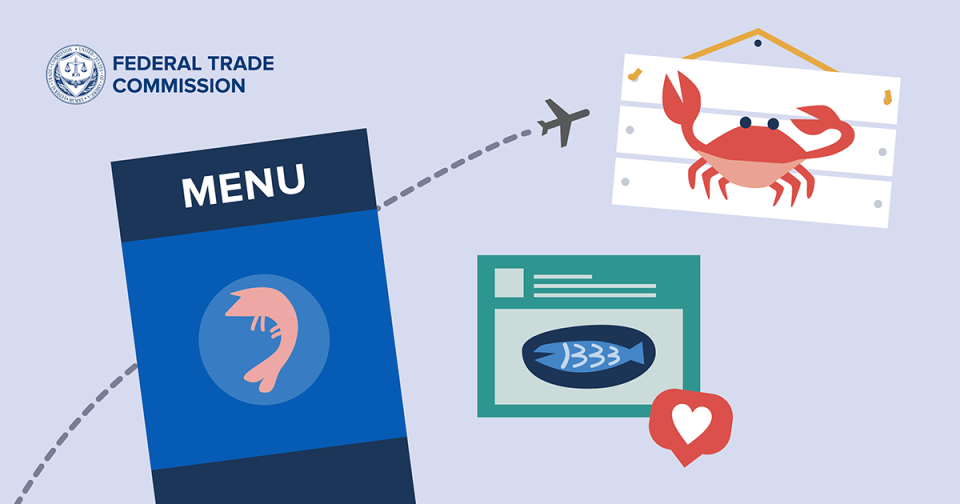Ahoy there, restaurant owners and other friends! Gather around to hear about the restaurant that tricked people into thinking its shrimp and fish were wild caught right nearby, when, actually, they were farmed, frozen, and shipped in from afar.
Imagine a waterfront restaurant with beachy décor. Fishing nets hang from the ceiling and pictures of shrimp and fishing boats cover the wall. You sit down at a table draped in red, white, and blue, and your server, dressed in a shirt that says, “We catch ‘em, you eat ‘em!” hands you a menu. It says, “Eat local! Try our seasonal fresh catch of the day!” You order that seasonal fresh catch and enjoy the sunset. While you’re waiting for your food, you check out the restaurant’s Instagram account and scroll through post after post of fishermen hooking glimmering fish and scooping nets full of shrimp out of the sea.
Given this scene, would you be surprised to find out that the seasonal fresh catch was actually farmed seafood, frozen overseas and shipped in?
The restaurant never said it outright. But, by using photos of fishermen and fishing boats, and saying things like “Eat local,” and “We catch ‘em,” the decorations, menus, and social media may give people what the FTC calls a net (seriously) impression that the restaurant serves fresh, local fish and shrimp. If that isn’t true, the restaurant needs to reel it in. Not only is it illegal to mislead customers about where the seafood is from, it’s also not fair to other restaurants that tell the truth and play by the rules.
Want to make sure you’re not trawling for trouble? Here’s some advice:
False implied claims are illegal. Everyone knows you can’t just lie in your ads. But, sometimes people try to bend the rules by using pictures, symbols, or other things to make people believe something about what they are selling without actually saying the words. That’s an implied claim. If it’s not true, it’s just as illegal as an outright lie.
Ads are everywhere, and you’re responsible. Ads aren’t just commercials, social media posts, websites, or labels. Other things like menus, restaurant décor, or even t-shirts and hats worn by servers or customers can be ads too. The same rules apply. Don’t make claims you can’t back up.
Look at the big picture. Take a minute to step back and think about how all your ads work together. What would a reasonable person think you are trying to say about the things you sell or the food you serve? Are all those things true? If not, make some changes.


Thank GOD For the watchful Eye That Keeping Consumers Aware, Safe, And Protected From Greed And Learning Dangerous Businesses out there,thanks to your hard work I'm able to say proudly GOD BLESS AMERICA
In reply to Thank GOD For the watchful… by Maher ALKHATIB
What was the name of the restaurant?
Yet, Car Insurance companies are doing just that when they say' Get Full Coverage for $49.00 from the original cost of $140.00
I see it every day, TV and Internet "Information Gathering Scam."
Am I missing something? "Gather around to hear about the restaurant..." What restaurant was it?
You're absolutely right. An implied claim is just as bad as an outright lie. So glad to have an organization that helps businesses and the general public watch out for misleading practices such as this fake "local catch" seafood implication. Thanks.